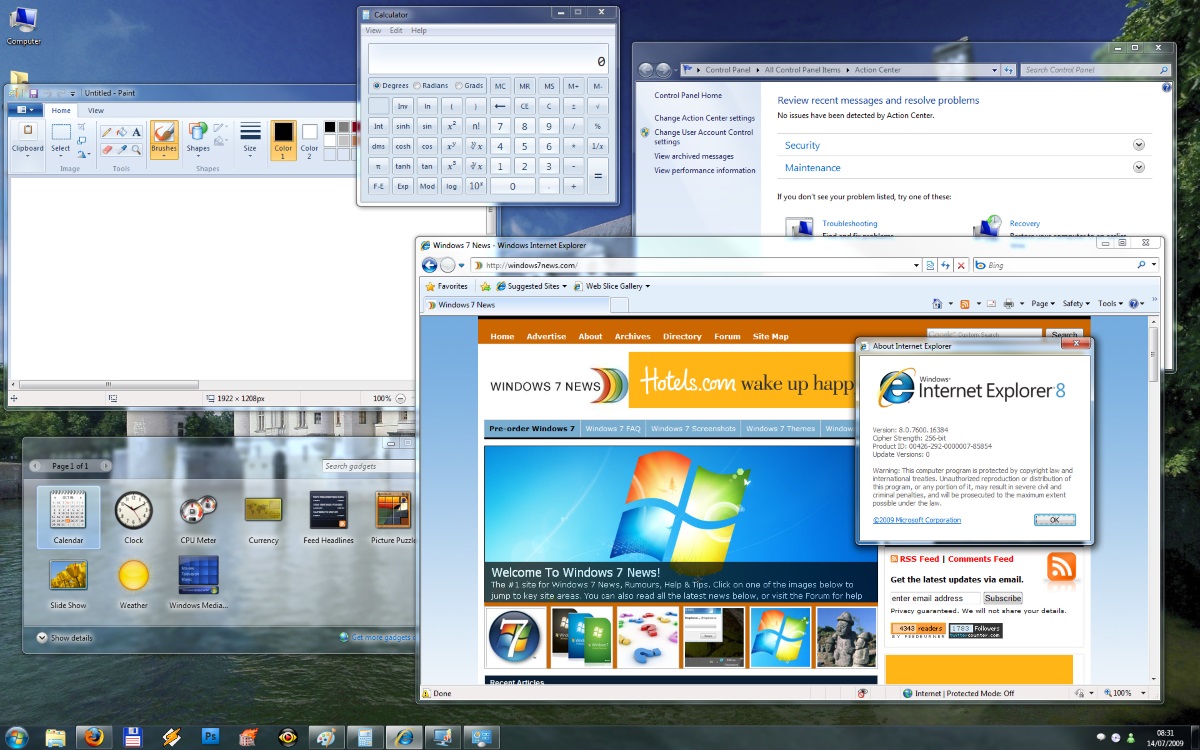Windows 7: Microsoft waves an early goodbye
Microsoft's Windows 7 operating system is still the world's most widely used OS, but that does not stop Microsoft from waving an early goodbye to the operating system.
The company informed customers on the German Microsoft press site that support for Windows 7 will end on January 14, 2020: about three years from today.
This means, according to Microsoft, that devices won't receive security updates or technical support anymore if they still run Windows 7 by that time.
If you are a regular here on Ghacks, or on other tech sites, you know that support will run out. You know about the Windows lifecycle, and that Windows 7 won't be supported forever by Microsoft.
Microsoft waving goodbye to Windows 7

Microsoft's press release paints a grim picture, highlighting that Windows 7 is the cause for high operating costs, that Windows 7 is susceptible for malware attacks causing a reduction in work time, and the cause for an increase in support requests.
In addition, manufacturers have begun to stop providing drivers for Windows 7 for hardware they release; Windows 7 won't support the newest chips by AMD, Intel or Qualcomm on top of all that.
Microsoft's solution for all of this is the company's newest operating system Windows 10. It states that it was never easier to switch from an older version of Windows to Windows 10. Windows 10 furthermore would offer better and exclusive security features and non-security features such as biometric authentication or the personal assistant Cortana.
My Take
Microsoft gets some of the facts right. Windows 7 support will run out in 2020, there is no doubt about that.
It is also okay to inform customers about the end of support for a much used operating system, even three years in advance. Home users may not have any issues changing an operating system from one week to the next, but companies may need months or even years in advanced to prepare for that.
But the press release is not entirely fair when it comes to Windows 7. I cannot really confirm for instance that companies have stopped distributing drivers for Windows 7 with their hardware components.
While that may be the case for a small selection of components, it seems highly unlikely that companies would stop producing drivers for the most used operating system out there at this point in time.
If there is one company that did that, it is Microsoft itself as company executives made the decision not to long ago to support newer chips by AMD or Intel only on Windows 10 and not on older versions of the Windows operating system. That decision was made deliberately by Microsoft.
Windows 10 offers better out of the box security than Windows 7, but it should be clear that security can always be better, and that third-party software, and making good use of common sense, may improve it significantly.
Closing Words
It is clear that the time that Windows 7 has left is running out. Three years is a long time however, and the prospect of migrating to an operating system that gets new feature upgrades twice a year may not be to the liking of companies who prefer as little change as possible when it comes to operating systems.
Sure, there is the long term servicing branch of the Enterprise edition of Windows 10, but it is reserved to the Enterprise edition. Small businesses, and medium sized businesses who use Pro versions of Windows 10 face the tough challenge of having to upgrade their devices to these new feature upgrade versions of Windows 10 regularly.
There is also the privacy issue. Microsoft promises to improve privacy options with the release of the Creators Update, out April 2017.
The company burned lots of bridges however, not only because of increased telemetry collecting in Windows 10, but also because of the aggressive pushing of the free Windows 10 upgrade to customer systems.
Now You: Windows 7, Windows 10, or another operating system? What will your devices run?